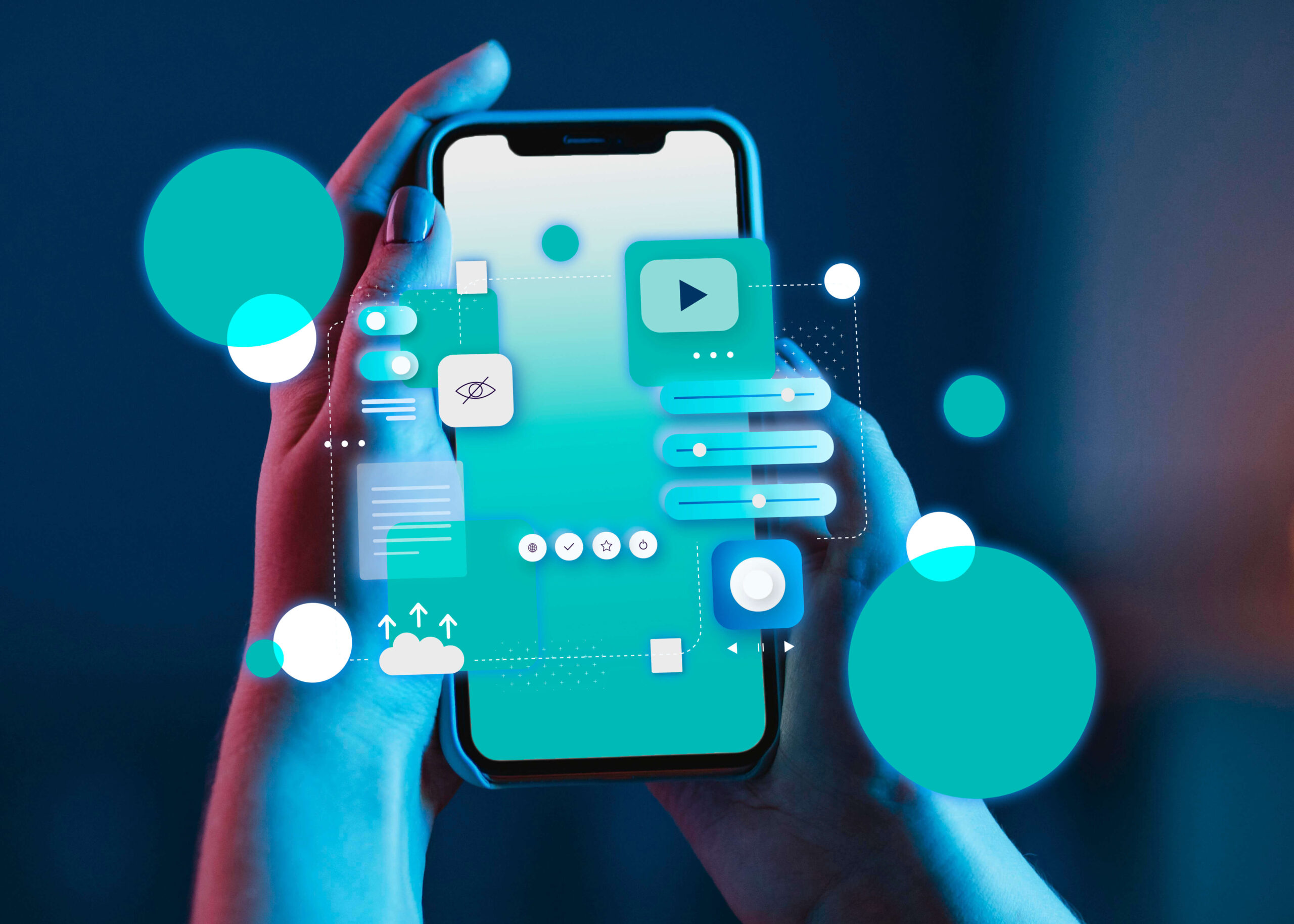In today’s fast-paced digital era, having a well-thought-out app development strategy is crucial for businesses aiming to stay competitive. The demand for mobile apps continues to rise, making it essential for companies to not only create an app but also to ensure its success in the market. Let’s delve into a comprehensive app development strategy that can pave the way for business triumph.
Introduction
Importance of App Development for Businesses
In a world where smartphones are an integral part of our daily lives, businesses can no longer afford to ignore the potential benefits of having a mobile app. An app provides a direct channel to reach and engage with customers, enhance brand visibility, and improve overall customer experience.
The Evolving Landscape of Mobile Apps
The mobile app landscape is dynamic, with trends and user preferences evolving rapidly. Keeping abreast of these changes is vital for crafting an app development strategy that aligns with current market demands.
Planning Your App Development Strategy
Defining Clear Objectives
Before diving into the development process, it’s crucial to define clear objectives for the app. Whether it’s increasing revenue, expanding customer reach, or improving internal processes, having a precise goal will guide the entire development journey.
Identifying Target Audience
Understanding the target audience is fundamental. Conducting thorough market research helps in identifying user demographics, preferences, and pain points, ensuring that the app meets the specific needs of the intended users.
Researching Competitors
Analyzing competitors provides valuable insights into what works and what doesn’t in the market. By learning from both successful and unsuccessful apps, businesses can refine their own strategies and offer a more compelling product.
Selecting App Platforms
Choosing the right platforms for app deployment is a critical decision. Whether it’s iOS, Android, or both, understanding the target audience’s device preferences is essential for maximizing reach.
The Design Phase
User Interface (UI) Design
An intuitive and visually appealing UI Design is paramount for user engagement. Collaborating with experienced designers to create a seamless and aesthetically pleasing interface enhances the overall user experience.
User Experience (UX) Design
Beyond aesthetics, focusing on UX design ensures that the app is easy to navigate and offers a satisfying user journey. A positive user experience is a key factor in user retention and app success.
Prototyping
Creating prototypes allows for testing and refining the app’s design and functionality before full-scale development. This iterative process ensures that the final product meets user expectations.
Development and Coding
Choosing the Right Technology Stack
Selecting the appropriate technology stack is pivotal for the app’s performance and scalability. Consideration of factors such as programming languages, frameworks, and databases is essential during this phase.
Development Methodologies
Agile, Scrum, or Waterfall – choosing the right development methodology depends on the project’s scope and requirements. Adopting an agile approach enables flexibility and continuous improvement throughout the development cycle.
Testing Protocols
Thorough testing is crucial to identify and rectify bugs and glitches. Implementing robust testing protocols, including unit testing, integration testing, and user acceptance testing, ensures a reliable and error-free app.
Launch and Marketing
Pre-Launch Marketing Strategies
Building anticipation before the app’s launch is key to a successful debut. Utilizing social media, email marketing, and teaser campaigns creates buzz and generates initial interest.
App Store Optimization (ASO)
Optimizing the app for app store visibility is essential for attracting organic downloads. This includes keyword optimization, compelling app descriptions, and visually appealing app screenshots.
Post-Launch Marketing Campaigns
The launch is just the beginning. Ongoing marketing campaigns, including updates, new feature announcements, and user testimonials, keep the app in the spotlight and maintain user engagement.
Maintenance and Updates
Regular Monitoring and Bug Fixing
Continuous monitoring of app performance is necessary to identify and address any issues promptly. Regular bug fixes contribute to a positive user experience and prevent user dissatisfaction.
User Feedback and Continuous Improvement
Actively seeking and incorporating user feedback is a valuable practice. Regularly updating the app based on user suggestions ensures that it remains relevant and aligned with user expectations.
Security Measures
Data Encryption
Ensuring the security of user data is non-negotiable. Implementing robust encryption measures safeguards sensitive information, building trust among users.
Regular Security Audits
Conducting regular security audits is vital to identify and address potential vulnerabilities. Proactive security measures protect both the app and its users from potential threats.
App Monetization Strategies
In-App Purchases
Strategically integrating in-app purchases provides an avenue for revenue generation. Offering valuable premium features or content encourages users to make purchases within the app.
Advertisements
Incorporating targeted advertisements can be a lucrative monetization strategy. Carefully selecting ad formats and placements minimizes disruption to the user experience.
Subscription Models
Subscription-based models offer a recurring revenue stream. Providing tiered subscription plans with varying features caters to different user preferences.
The Role of Analytics
Tracking User Behavior
Implementing robust analytics tools helps in understanding user behavior within the app. Analyzing user data provides insights for optimizing the app’s features and functionality.
Utilizing Analytics for Improvement
Data-driven decision-making is essential for ongoing improvement. Leveraging analytics data allows businesses to make informed decisions on updates, features, and overall app strategy.
Adapting to Technological Advancements
Staying Updated with Industry Trends
The tech landscape is ever-evolving. Staying updated with the latest trends and innovations ensures that the app remains competitive and can adapt to emerging technologies.
Future-Proofing Your App
Anticipating future trends and potential technological advancements is essential for long-term success. Building flexibility into the app’s architecture facilitates easier adaptation to new technologies.
Case Studies
Successful App Development Stories
Examining successful app development stories provides valuable insights into strategies that lead to triumph. Learning from real-world examples can inspire and inform your own approach.
Learning from Failures
Analyzing unsuccessful app launches is equally important. Understanding the reasons behind failures helps in avoiding common pitfalls and making informed decisions.
Challenges in App Development
Addressing Common Pitfalls
Navigating the challenges in app development requires a proactive approach. Identifying and addressing common pitfalls such as poor planning, inadequate testing, or lack of market research is crucial.
Overcoming Technical Challenges
Technical challenges are inevitable. Having a skilled development team and a contingency plan for technical hurdles ensures a smoother development process.
Conclusion
Recap of Key Strategies
In summary, a comprehensive app development strategy involves meticulous planning, user-centric design, strategic marketing, and continuous improvement. Success in the competitive app market requires a holistic approach that encompasses the entire development lifecycle.
The Ever-Growing Potential of App Development
As technology advances, the potential for innovative and successful app development continues to grow. Businesses that embrace this potential and adopt a strategic approach can position themselves for sustained success.
Gml Soft Labs stands as a beacon of excellence in the app development landscape. Their commitment to innovation, quality, and client satisfaction sets them apart as the top app development company in Chennai. Businesses looking to elevate their digital presence and user experience need not look further—Gml Soft Labs is the partner they can trust.
FAQs
- How long does it take to develop a successful app? Developing a successful app varies based on complexity, features, and development methodology. On average, it can take several months.
- What is the importance of user feedback in app development? User feedback is crucial for refining and improving the app. It provides insights into user preferences and helps address any issues or shortcomings.
- Are there any security risks in app development? Yes, security risks exist. Regular security audits and robust encryption measures are essential to mitigate potential threats.
- What are the key factors in selecting a technology stack for app development? Factors such as project requirements, scalability, and the expertise of the development team influence the choice of a technology stack.
- How can businesses monetize their mobile apps effectively? Effective monetization involves strategies like in-app purchases, advertisements, and subscription models, tailored to the app’s target audience.
 seolounge
seolounge
